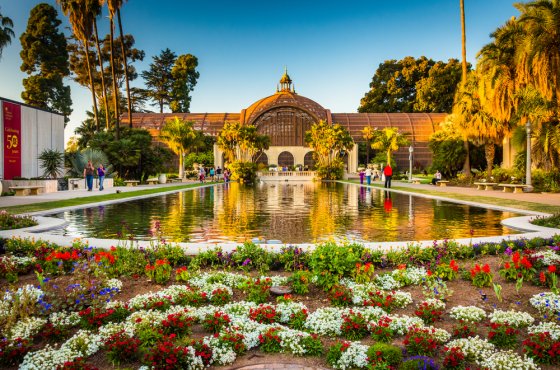The history of Muscovite who moved to Japan

Photo by juliaenhel.com
Japan is one of the most closed countries. Difficulties arise not so much while obtaining the documents necessary for living there, as when dealing with representatives of ancient Asian culture. However, some of our compatriots were able not only to settle down on such a difficult ground, but also to open their own business in the country. «Lenta.ru report»Talked to a business woman and traveler Julia Engel, who moved from Moscow to Tokyo.
Spiritual beginning
I was born in Moscow in 1989 year. She graduated from the magistracy and the Graduate School of International Business of the Russian Academy of National Economy and Public Administration under the President of the Russian Federation (Federal State Budgetary Educational Institution of Higher Professional Education RANEKh and GS). She received a master's degree and an MBA in international business. Internship in Japan and greatly fascinated by this unusual country.
I remember how I was preparing for my first visit here. I read a lot of literature on Japan, studied guides, listened to audiobooks, and memorized phrases in a Russian-Japanese phrasebook. Although I understood that I was going to an amazing country, the reality turned out to be even more amazing. This is a different world, and all the people here are aliens. It seems that everything is perfect.
The first thing I did when I arrived in Tokyo was to go to Narita-san, a large temple complex in eastern Japan, in the city of Narita, not far from Narita International Airport, 75 kilometers from the center of Greater Tokyo.
I read a lot about him and dreamed to get there. My visit to the temple, built back in 940, fell to worship for the god of fire - the powerful Fudomeo.
A bonfire was made in the center of the temple hall, the monks beat the taiko drums, sang a prayer, and around the fire were both tourists and Japanese, who came from all over the country to pay tribute to Fudomeo. I also participated in the ceremony - I gave my bag to the monk, he carried it over the fire and thus consecrated everything that was in it. It is believed that now the bag and all its contents will bring me only happiness, love, prosperity and good luck.

Photo by juliaenhel.com
Full control
It was difficult to get used to the Japanese mentality, restraint, overly thorough approach. I remember how the first time I was knocked out of the rut, that they laugh at my every awkward movement. According to them, of course. Or embarrassed if you are emotionally gesticulating. The Japanese have high self-control in everything, and foreigners behave differently. That was at first difficult - to understand that they are so fun. I felt awkward, and it was very annoying. Although not everywhere in Tokyo, they do not laugh.
Realization of dreams
Japan has always been a dream country for me: mysterious and inviting. Literally everything fascinated - traditions, culture, language, history, legends. Japanese medicine and cosmetology is a special topic for me, which just turned my life. For many years, my grandmother in Russia suffered from diabetes. No one could help until in Japan I learned about hydrogen water, which lowers blood sugar levels.
It helped my grandmother, and I realized that many of the best inventions of mankind are concentrated in Japan.
By the way, here almost no one drinks ordinary water - only hydrogen. I am very attracted to such a deliberate attitude towards my health and nature. Since 2014, hydrogen cars have been produced here. The exhaust of such a machine is ordinary water.
After the hydrogen water helped my grandmother so much, I wanted to help the Russians with the same problem. Living in Japan, I head a Russian company whose main task is to carefully select the world's best technologies in the field of health and beauty. Our company has made Japanese hydrogen water and therapeutic hydrogen cosmetics available in Russia.

Photo by juliaenhel.com
Work moment
I can not say that everything was easy and smooth in the business with the Japanese. There were enough difficulties - different mentality, views and principles of work. Business in Japan is a special kind of art that requires compliance with certain norms and rules. But I think everyone here is individually.
For example, before negotiating with Japanese colleagues, you must exchange business cards. Here is a kind of ritual. Serve a business card should be facing the recipient, while making a bow - this is also a local tradition. Accepting a business card from a partner, be sure to study it, so you show your respect.
The next stage of the negotiations is the presentation of gifts symbolizing the country from which you came. In our case, for example, there can be a nested doll, Russian vodka. The Japanese, by the way, like to drink, especially vodka and beer. They, in turn, will also give you something national: local sweets, for example.
In the UK harder
In Japan, I live on a business visa, at the invitation of business partners. Decorated through the embassy.
I can not say that it was a particularly difficult or lengthy process. Probably nothing can be compared to obtaining a visa to the UK. The percentage of positive decisions here is much lower than, for example, the Schengen countries. Consuls of Japan pay special attention to each potential traveler who has requested a visa, carefully studying the package of submitted documents and analyzing the purpose of the upcoming trip.

Photo by juliaenhel.com
Exotic heating
Two things struck me most in Japan: the lack of heating in the apartments and the kotatsu. In high-rise buildings, central heating is only in the north. The rest of the winter are heated themselves with heaters, air conditioners, electric blankets, infrared carpets.
But there is one purely Japanese device that won me over. They say it is in every home. Kotatsu is a table with a heating element under the lid, covered with a large blanket. Top blankets again tabletop. Around can be chairs or sofas. You can gather at the table as a family in a warm atmosphere and in a narrow circle.
Prosperous and healthy
Japan is a rich country with a high standard of living. The average level of income per year (after paying all taxes) in a local family is about 24,5 thousand US dollars per person. The Japanese provide their children with a good education. The greatest incomes, of course, in the capital Tokyo and the largest city of Yokohama But the standard of living in different cities of Japan is almost the same, everywhere is an acceptable income.
Life expectancy here is also high - on average 83 of the year. In addition, Japan is considered one of the safest countries in the world - crime is very low.
Not only the Japanese, but also the guests of the country have nothing to worry about: you can walk the streets at any time of the day, no one will encroach on life or property. Many do not close the door at night, the cars are left in the parking lots almost with the keys inside.

Photo by juliaenhel.com
Ambiguous education
Japanese are brought up very strictly - not to say hard. Up to five years, the child is allowed everything - he is treated like a king, everything is indulged. But from five to six years they keep, as they say, in tight rein. From the age of fifteen, a teenager is equal to adults.
This is the paradox of Japanese education - absolutely everything is permitted in childhood, then ten years of drill and labor. And the person grows up as a disciplined, law-abiding citizen. One of the main principles of the Japanese worldview is “everything has its place”.
Feng Shui
Currently, Japan is dominated by two forms of housing - single-family homes and apartment buildings owned either by individuals or by corporations. Rent the cheapest one-room apartment in Tokyo with an area of 40 square meters - from 1000 euros per month. Outside the capital a bit cheaper.
Apartment price - 100-200 thousand euros, depending on the area. It is expensive even for the Japanese, although their salaries are quite decent. That is why many live with their parents, not trying to get their own housing.
When renting an apartment, it is required to pay the full cost of the monthly rent as a security deposit and the same amount to the agency making out the rent. It is also customary for the Japanese to make gifts to the landlord — money is best. In addition, the Japanese demand from foreigners to provide them with a guarantor-guarantor, who is able to pay housing for you, if for some reason you cannot make a payment on time.
The purpose of the rooms may vary depending on the interior: today is the bedroom, tomorrow is the study. All because the furniture is easy to assemble and compactly stored. Earth, as you know, is in great deficit in Japan - every meter counts. Almost every Japanese house has a bath. It is a bath, not a shower, as the locals love to take a bath. The Japanese are obsessed with cleanliness, so do not be surprised to see special slippers in front of the toilet, in which you should change your shoes while heading to the restroom.

Photo Pixabay
Put on rails
I know that there are communities like Russian speaking community of Japan on Facebook, “Taste of Japan” in LiveJournal, another interesting and useful portal. Budo Community. Not many Russians live in Japan, but many, especially from the Far East, Kamchatka, come here as tourists.
As for me, at the moment I am completely satisfied with the established order of things. I like working with the Japanese. At the same time, I occasionally fly to Moscow, so I don’t have time to get bored much. I maintain close contact with my family, friends, business partners and colleagues who stayed in Russia.
Read also on ForumDaily:
Russian tried to immigrate to 5 countries and compared life and work
Stories of people who have experienced several emigration
5 things that are not enough for our emigrants abroad
The Russians who won the green cards talked about how moving to the USA changed their lives.
Subscribe to ForumDaily on Google NewsDo you want more important and interesting news about life in the USA and immigration to America? — support us donate! Also subscribe to our page Facebook. Select the “Priority in display” option and read us first. Also, don't forget to subscribe to our РєР ° РЅР ° Р »РІ Telegram and Instagram- there is a lot of interesting things there. And join thousands of readers ForumDaily New York — there you will find a lot of interesting and positive information about life in the metropolis.
-
Pros and cons of political asylum in the United States12868
-
Five dangerous mistakes when applying for a green card due to marriage4147
-
15 amazing professions you might not know about1313
-
A way to save in Target, which many do not know1034
-
What you need to know before you go on your first cruise812
-
Breathtaking: Must-Have Places in Southern California467
-
How to Fly Free: 10 Tips385
-
Pros and cons of political asylum in the United States12868
-
Personal experience: who and why you should not move to the USA5614
-
Where in the USA to buy the medicines we are used to: a list of pharmacies5330
-
50 diseases whose presence will increase the cost of health insurance in the USA4329
-
Five dangerous mistakes when applying for a green card due to marriage4147
-
Street, avenue, boulevard or drive: how to understand the classification of US streets and roads1461
-
Personal experience: what not to do in America1402











